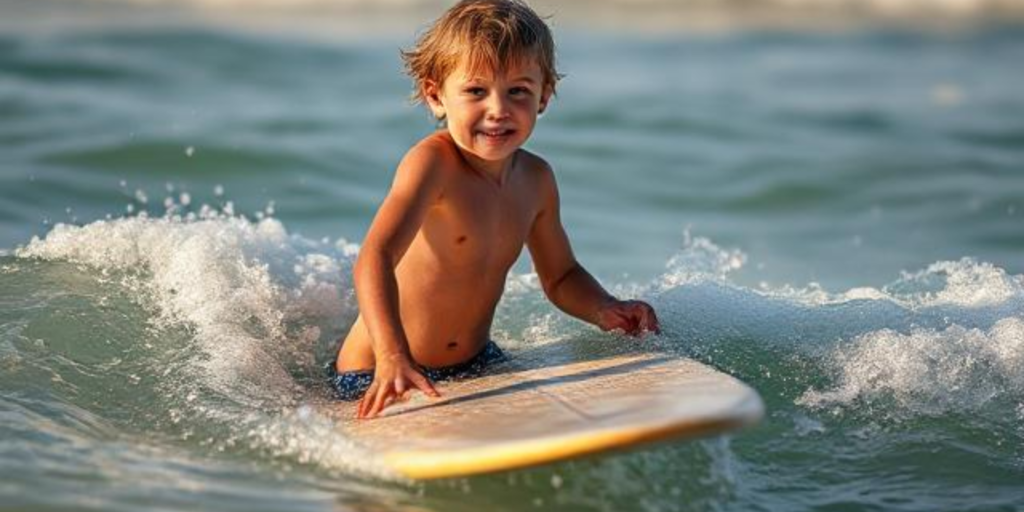
Do Surfers Age Quicker? Surfing is often seen as a sport that keeps people young, vibrant, and full of life. It’s an activity that promotes fitness, mental well-being, and a deep connection with nature. But on the flip side, some believe that the relentless exposure to the elements, the physical wear and tear, and the intense lifestyle might actually speed up the aging process. So, do surfers really age quicker? Let’s take a deep dive into the factors that influence aging and whether surfing is a friend or foe when it comes to staying youthful.
The Science of Aging
Aging is a natural process influenced by genetics, lifestyle, and environmental factors. It affects the body both internally and externally, leading to changes like wrinkles, graying hair, reduced muscle mass, and slower metabolism. While we can’t stop the clock, the way we live our lives plays a big role in how quickly we show signs of aging.
The Impact of Sun Exposure
One of the biggest aging concerns for surfers is their exposure to the sun. Spending hours in the water without proper protection can lead to:
- Premature Skin Aging: The sun’s UV rays break down collagen and elastin, causing wrinkles, fine lines, and sagging skin.
- Sunspots and Uneven Skin Tone: Hyperpigmentation from sun damage can make skin appear older.
- Higher Risk of Skin Cancer: Surfers, like other outdoor athletes, have an increased risk of skin cancer due to prolonged sun exposure.
While these factors can speed up visible aging, wearing high-quality sunscreen, rash guards, and protective gear can help prevent damage and keep the skin looking youthful.
The Effect of Saltwater on Skin
Saltwater is a double-edged sword when it comes to skin health. On one hand, it has natural exfoliating and antibacterial properties that help clear up acne and promote fresh skin. On the other, constant exposure can strip away natural oils, leading to dryness, irritation, and premature aging.
The key to keeping your skin healthy? Moisturize regularly and rinse off with fresh water after every surf session to remove excess salt.
How Surfing Affects the Body
Surfing is an incredible full-body workout. Paddling strengthens the shoulders and back, standing up engages the core, and balancing on the board keeps the legs strong. This level of activity has huge anti-aging benefits:
- Better Heart Health: Surfing is a cardiovascular workout that improves circulation and heart function.
- Stronger Muscles and Joints: Regular movement helps maintain muscle tone and joint flexibility.
- Boosted Mental Health: Exercise releases endorphins, reducing stress and promoting overall well-being.
However, years of repetitive movement can lead to injuries, particularly in the shoulders, knees, and lower back. Without proper stretching and recovery, chronic pain and stiffness can set in over time, making surfers feel older than they are.
The Pros and Cons of Cold Water Surfing
Cold water surfing presents its own challenges. On the positive side, cold exposure has been linked to reduced inflammation, improved circulation, and boosted immune function. However, prolonged time in cold water can lead to:
- Weakened Immune System: Too much exposure without proper recovery can wear down the body.
- Dry Skin and Hair Damage: Cold water strips away natural moisture, leading to chapped skin and brittle hair.
Wearing the right wetsuit, using nourishing hair and skincare products, and warming up properly can help counteract these effects.
Stress, Surfing, and Aging
Stress is one of the biggest accelerators of aging. High levels of cortisol (the stress hormone) contribute to inflammation, wrinkles, and even cognitive decline. Surfing, however, is a natural stress reliever. The rhythm of the waves, the focus required to ride them, and the connection with nature all help reduce stress levels, ultimately slowing down the aging process.
Diet and Recovery: Keys to Longevity
A healthy diet and proper recovery are essential for staying youthful. If a surfer’s diet lacks nutrients or they don’t allow their body to rest, aging can speed up. Key factors to consider include:
- Eating Antioxidant-Rich Foods: Berries, leafy greens, and nuts help fight oxidative stress.
- Staying Hydrated: Water is crucial for skin elasticity and overall cell function.
- Prioritizing Sleep and Rest: Recovery is just as important as physical activity in maintaining longevity.
Surfers who fuel their bodies properly and allow time for rest will likely maintain their youthful energy much longer than those who don’t.
The Mental Aspect of Aging
One of the most incredible things about surfers is their youthful mindset. Many older surfers remain passionate about the sport well into their later years, keeping their enthusiasm, energy, and zest for life alive. This mental resilience plays a huge role in how we age—after all, staying young at heart can make a person seem younger, regardless of their actual age.
Conclusion: Do Surfers Really Age Quicker?
The answer isn’t black and white. Some aspects of surfing, like excessive sun exposure and physical strain, can contribute to premature aging. However, the benefits of an active lifestyle, reduced stress, and a positive mindset counteract many of these effects.
Surfers who take care of their skin, protect themselves from injuries, eat well, and balance their time in the water with proper recovery are likely to age gracefully rather than prematurely. Ultimately, it’s not just about looking young—it’s about feeling young. And for many surfers, riding the waves is the ultimate secret to staying vibrant, happy, and youthful for years to come.
- How to Get From Sanur to Gili Trawangan (Best Ways to Travel)
- What to Do in East Bali: Top Adventures, Culture & Hidden Gems
- How to Get From Lombok to Nusa Penida (Best Routes + Tips!)
- Bali to Nusa Penida: Best Ways to Get There (Updated Tips & Prices!)
- Bali Is in Indonesia: Everything You Need to Know About This Island Paradise





